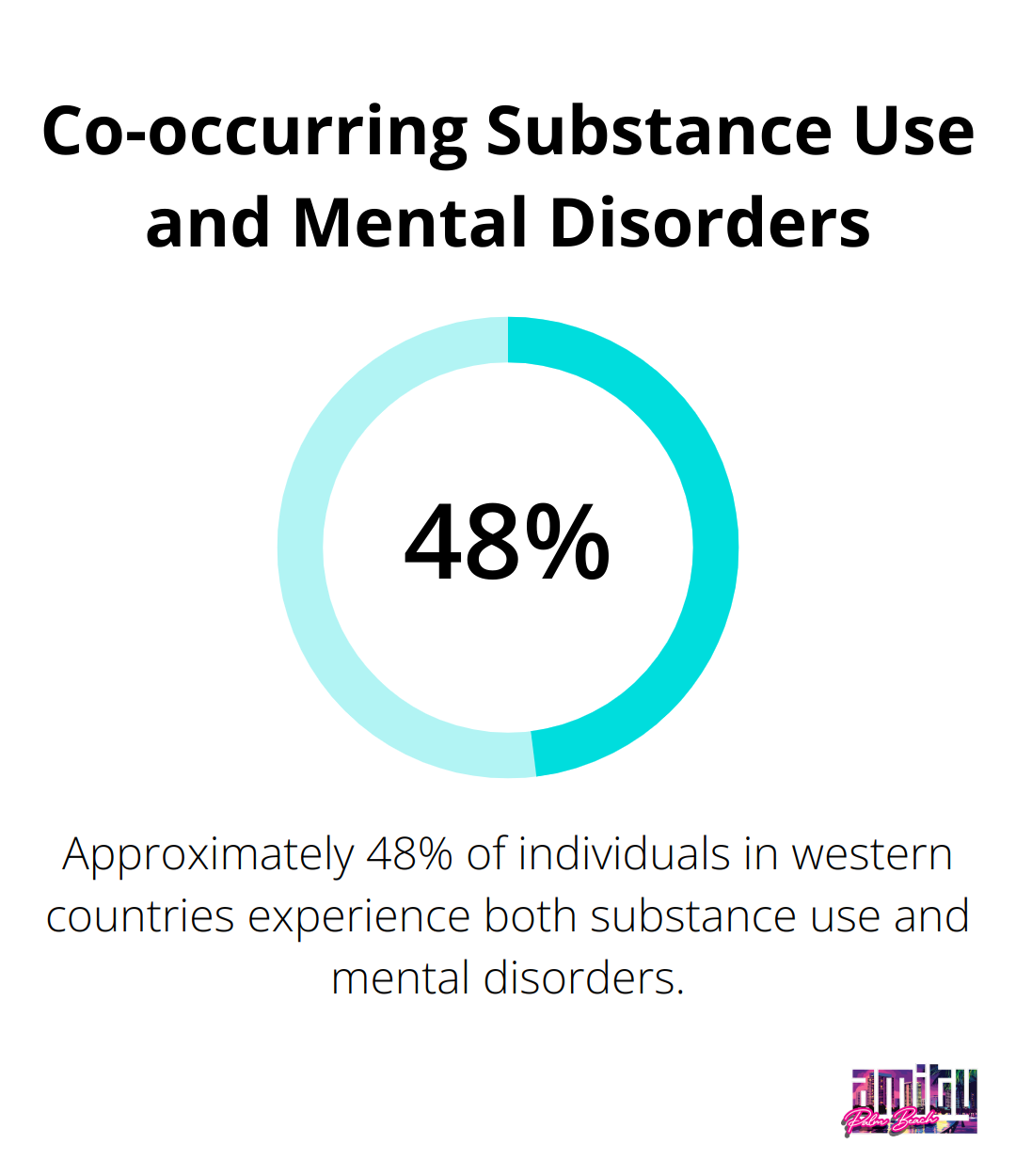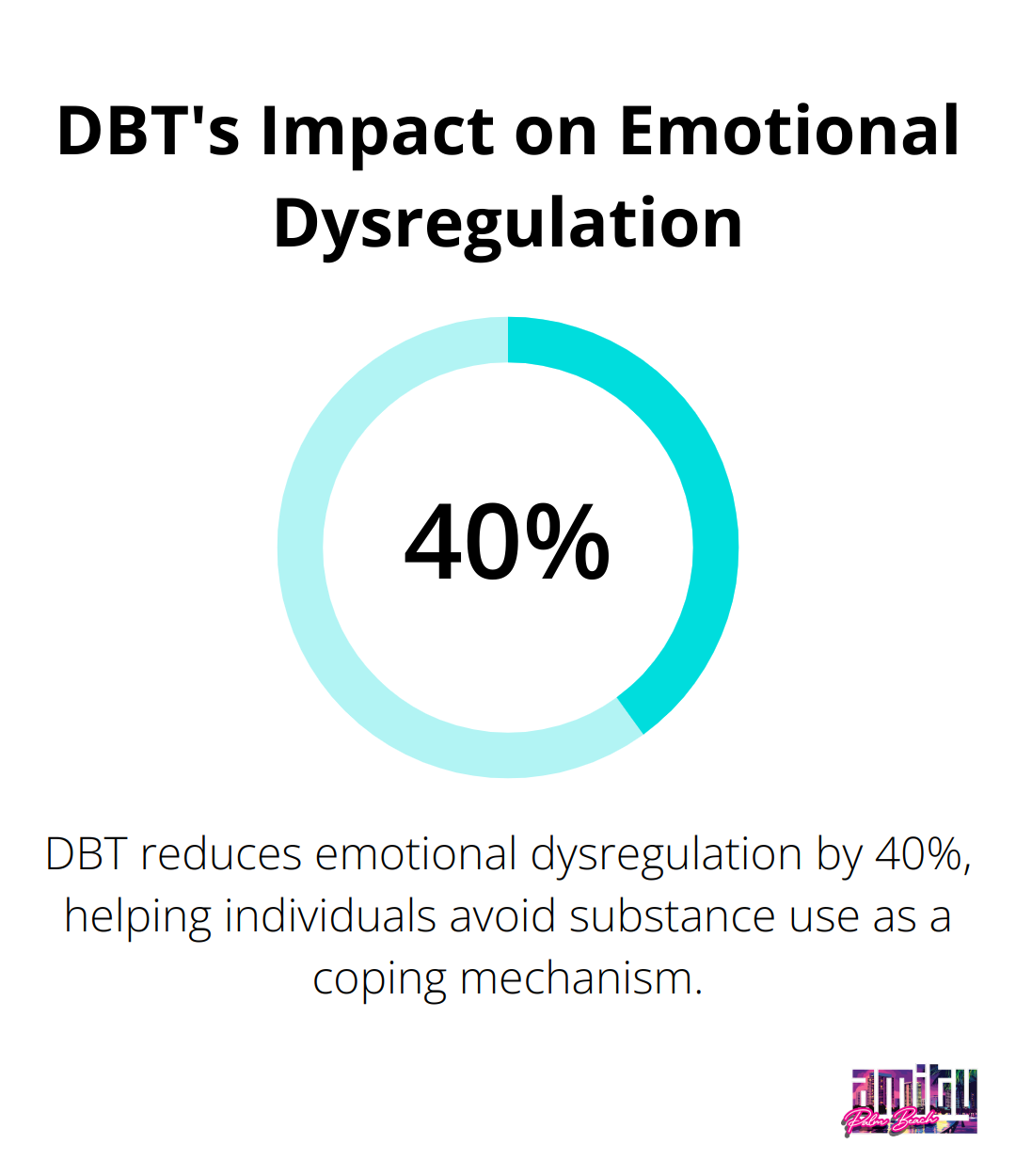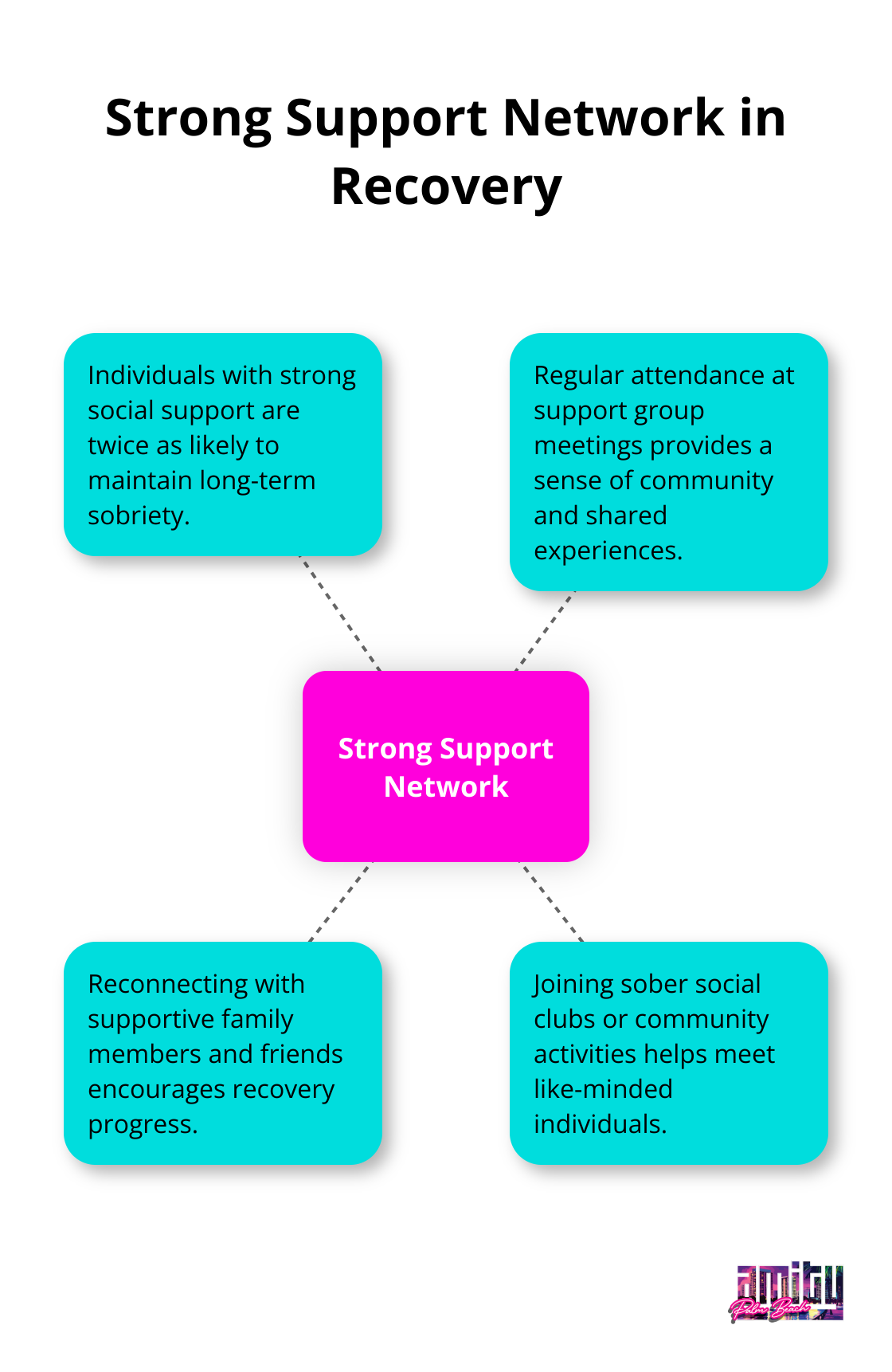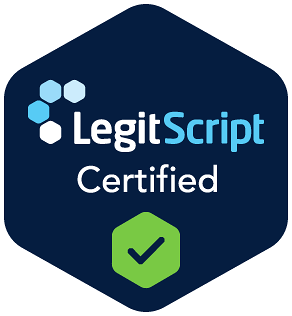At Amity Palm Beach, we understand the critical role of behavioral health in addiction recovery.
Behavioral health encompasses mental health, emotional well-being, and the behaviors that affect overall wellness.
In addiction treatment, addressing these aspects is essential for long-term success and sustainable recovery.
How Behavioral Health Affects Addiction
The Interplay of Behavioral Health and Addiction
Behavioral health significantly influences addiction recovery, shaping an individual’s response to triggers, stress management, and navigation of sobriety challenges. At Amity Palm Beach, we recognize this connection as fundamental for effective treatment strategies.
Behavioral health encompasses mental health conditions, emotional well-being, and behaviors that impact overall wellness. These factors intertwine deeply with substance use disorders. Co-occurring substance use and mental disorders are relatively common in western countries, with approximately 48% of individuals experiencing both conditions. This statistic highlights the necessity of addressing behavioral health in addiction treatment.

Common Behavioral Health Issues in Addiction
Several behavioral health issues frequently co-occur with addiction. Depression and anxiety rank among the most prevalent. Post-traumatic stress disorder (PTSD) also plays a significant role, particularly among veterans and trauma survivors.
The Impact on Recovery
Untreated behavioral health issues can significantly obstruct recovery efforts. For instance, individuals with untreated depression might turn to substances as a form of self-medication, perpetuating the addiction cycle. Similarly, those with anxiety disorders often rely on alcohol or benzodiazepines to manage their symptoms, leading to dependency.
Addressing Behavioral Health in Treatment
Effective addiction treatment requires a holistic approach, tackling both substance use and underlying behavioral health issues. Integrated treatment has been shown to be effective in increasing motivation for treatment among patients with anxiety and/or depression together with substance use disorders in outpatient settings. We implement evidence-based therapies such as Cognitive Behavioral Therapy (CBT) and Dialectical Behavior Therapy (DBT) to address both addiction and co-occurring mental health conditions.
The Path Forward
A focus on behavioral health alongside addiction treatment helps individuals develop healthier coping mechanisms, improve emotional regulation, and build resilience necessary for long-term recovery. This comprehensive approach not only aids in achieving sobriety but also in maintaining it over time. As we move forward, we’ll explore specific treatment approaches that effectively address behavioral health in addiction recovery.
Effective Treatment Approaches for Behavioral Health in Recovery
At Amity Palm Beach, we employ a range of evidence-based treatment approaches to address behavioral health in addiction recovery. These methods have proven successful in helping individuals overcome substance use disorders and co-occurring mental health conditions.
Cognitive Behavioral Therapy (CBT)
CBT forms a cornerstone of our treatment program. This approach helps individuals identify and change negative thought patterns and behaviors that contribute to addiction. Research indicates that CBT for alcohol and other drug use disorders is a well-established intervention with demonstrated efficacy, although effect sizes are in the small-to-moderate range.
In CBT sessions, our therapists work with clients to:
- Recognize triggers and high-risk situations
- Develop coping strategies to manage cravings
- Challenge and reframe negative self-talk
- Build problem-solving skills for daily life challenges
Dialectical Behavior Therapy (DBT)
DBT proves particularly effective for individuals who struggle with emotional regulation and impulsivity. This therapy combines elements of CBT with mindfulness practices. Studies indicate that DBT reduces emotional dysregulation by 40%, helping individuals avoid substance use as a coping mechanism.

Our DBT program focuses on four key areas:
- Mindfulness: Staying present and aware
- Distress tolerance: Coping with difficult emotions without turning to substances
- Emotion regulation: Managing intense feelings effectively
- Interpersonal effectiveness: Improving relationships and communication skills
Motivational Interviewing
Motivational Interviewing is a client-centered approach that helps individuals resolve ambivalence about change. This technique is especially useful in the early stages of recovery when motivation may be low.
Our therapists use this approach to:
- Explore and resolve ambivalence about recovery
- Strengthen motivation for positive change
- Develop a personalized plan for recovery
- Enhance self-efficacy and confidence in ability to change
Group Therapy and Support Groups
Group therapy and support groups play a vital role in our treatment program. These sessions provide peer support, reduce feelings of isolation, and offer opportunities to practice new skills in a safe environment.
We offer various types of groups, including:
- Skills-based groups: Learning and practicing coping strategies
- Process groups: Sharing experiences and emotions
- Psychoeducational groups: Learning about addiction and mental health
- 12-step facilitation groups: Introducing and supporting 12-step program participation
These evidence-based approaches create a comprehensive treatment plan tailored to each individual’s needs. This integrated approach addresses both addiction and underlying behavioral health issues, providing the best chance for long-term recovery.
As we move forward, we’ll explore the importance of lifestyle changes in supporting behavioral health during the recovery process. These changes (which include developing healthy coping mechanisms and establishing routines) complement the therapeutic approaches discussed here, creating a holistic recovery journey.
Transforming Your Life in Recovery
Create a Recovery-Focused Routine
Establishing a structured daily routine supports stability in recovery. Set consistent wake-up and bedtime hours. Plan your meals, work or study time, therapy sessions, and leisure activities. Include time for self-care practices like meditation or journaling.
Nourish Your Body and Mind
Proper nutrition and regular exercise play a vital role in recovery. Substance abuse often leads to nutritional deficiencies and poor physical health. Eat a balanced diet rich in fruits, vegetables, lean proteins, and whole grains. Stay hydrated by drinking plenty of water throughout the day.
Incorporate regular physical activity into your routine. Early research shows aerobic exercise and resistance training might help with addiction recovery. Try at least 30 minutes of moderate exercise most days of the week (this could include activities like walking, swimming, yoga, or strength training).
Build a Strong Support Network
Surround yourself with supportive, sober individuals for long-term recovery. Attend support group meetings regularly, whether it’s a 12-step program or an alternative support group. These meetings provide a sense of community and allow you to learn from others’ experiences.
Reconnect with supportive family members and friends who encourage your recovery. Consider joining sober social clubs or participating in community activities to meet like-minded individuals. A study in the journal Addiction found that individuals with strong social support were twice as likely to maintain long-term sobriety compared to those with limited support networks.

Develop Healthy Coping Mechanisms
Learn to manage stress and emotions without turning to substances. Explore different stress-reduction techniques such as deep breathing exercises, progressive muscle relaxation, or mindfulness meditation. Engage in hobbies or creative activities that bring you joy and provide a healthy outlet for emotions.
Consider keeping a journal to track your thoughts and feelings. This can help you identify triggers and patterns in your behavior. When you feel overwhelmed, reach out to your support network or therapist for guidance.
Transforming your lifestyle takes time and patience. Be kind to yourself as you navigate these changes. With consistent effort and the right support, you can build a fulfilling life in recovery that supports your long-term behavioral health and sobriety.
Final Thoughts
Behavioral health plays a central role in addiction recovery. We at Amity Palm Beach understand the complex interplay between mental well-being and substance use disorders. Our team employs evidence-based therapies to address both addiction and co-occurring mental health conditions.
Professional support proves invaluable in reshaping thought patterns and managing emotions effectively. We offer a holistic approach to addiction treatment that prioritizes behavioral health (including Cognitive Behavioral Therapy and Dialectical Behavior Therapy). Our experienced professionals guide individuals through the multifaceted journey of recovery.
Seeking help demonstrates strength, not weakness. If you or a loved one struggles with addiction, we encourage you to reach out for professional support. Amity Palm Beach stands ready to assist you in creating a fulfilling life in recovery.




